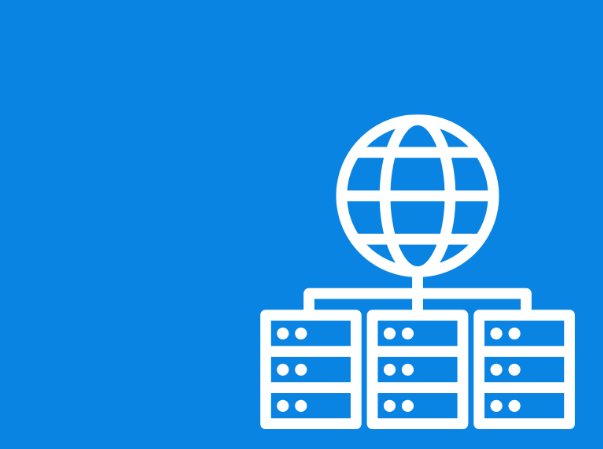How to Choose the Right VPS Plan - 5 Key Factors for 2026

VPS Plan: 5 Key Factors to Make the Right Decision
When you're looking to choose a VPS (Virtual Private Server), it can be overwhelming due to the wide variety of options available in the market. From different configurations to different service providers, it can be hard to know where to start. Whether you're setting up a personal blog, a small business website, or a large-scale application, it's important to select a VPS that fits your needs. This guide breaks down the five key factors to consider when choosing the right VPS plan for you.
1. Understand Your Needs: Define Your Use Case
Before diving into specs and pricing, it's essential to clearly understand the primary purpose for which you'll use the VPS. Different use cases have different resource requirements:
- Personal website or blog: If you're running a small website or blog with moderate traffic, a basic VPS with lower CPU and RAM will be enough.
- Business website or e-commerce platform: For higher traffic websites that require better uptime, higher bandwidth, and faster load times, you'll need a VPS with higher resources.
- Gaming server or resource-intensive applications: These require robust CPU performance and lots of RAM for seamless operation, along with fast disk read/write speeds.
Tip: Define your project requirements. Will you need more CPU power, storage space, or bandwidth?
2. Performance: CPU, RAM, and Storage
When it comes to VPS, performance is king. The performance of your VPS will directly affect how smoothly your applications run. Here are the three critical performance metrics to focus on:
CPU
The processor is the brain of the VPS, so make sure you’re getting a reliable one. Most VPS providers offer Intel or AMD CPUs. If you’re running high-performance applications, like video editing software or resource-heavy websites, you’ll need more powerful CPUs, such as Intel Xeon or AMD EPYC.
RAM
RAM determines how many applications and processes you can run simultaneously. For basic usage like a personal website or a small development environment, 2GB or 4GB might suffice. However, for resource-heavy applications, consider 8GB or more for smoother performance.
Storage
VPS storage comes in two main types: SSD (solid-state drive) and HDD (hard disk drive). SSDs are faster, more reliable, and ideal for hosting websites, databases, and applications that require frequent data access.
Tip: Make sure to balance CPU, RAM, and storage based on the scale of your operations.
3. Bandwidth and Network Speed
The amount of bandwidth your VPS has directly affects how much traffic your website can handle without slowing down. The more bandwidth, the more data your VPS can transfer without reaching capacity.
If you're expecting heavy traffic or plan to stream media, you'll need a VPS with high bandwidth and fast network speeds. Low latency and fast data transfer rates are essential for providing a seamless experience for your users.
Tip: Check if the VPS offers unmetered bandwidth to avoid overage charges.
4. Security and Backup Options
VPS security is a crucial factor that should never be overlooked. Security threats such as hacking attempts, malware, or data breaches can affect your website and business. Look for VPS providers that offer:
- DDoS protection: Ensures your server remains safe from distributed denial-of-service attacks.
- Automated backups: Daily or weekly backups are essential in case of data loss or server failure.
- Firewall protection: A VPS provider with built-in firewall solutions can prevent unauthorized access.
Tip: Ensure the VPS provider offers SSL certificates, firewall management, and regular backups to safeguard your data.
5. Customer Support and Service Level Agreements (SLAs)
Great customer support is essential when managing a VPS. You may face issues at any time, from performance slowdowns to security breaches, and having a responsive support team can make all the difference.
Look for VPS providers that offer:
- 24/7 customer support (via chat, email, or phone)
- High-quality knowledge base for self-help
- Service Level Agreements (SLAs) to ensure uptime guarantees and rapid resolution times
Tip: Read reviews about customer support experiences before committing to a VPS provider.
Quick Recommendations: VPS Providers for Different Needs
LightNode – Best for high-performance needs, LightNode is ideal for developers and businesses that require reliable, fast, and secure VPS services. With excellent scalability and great customer support, it's perfect for those looking for strong performance without breaking the bank.
DigitalOcean – A favorite for developers due to its simplicity and powerful infrastructure, perfect for anyone setting up personal websites, small apps, or development environments. Visit DigitalOcean.
Vultr – Great for those who need affordable yet powerful VPS options with excellent network performance. Ideal for small to medium-sized businesses looking for a budget-friendly option. Check out Vultr.
Hostwinds – Known for its great customer support and flexibility, Hostwinds is ideal for those who want customized solutions for various needs, from personal projects to business-grade applications.
Conclusion
By following these five key considerations, you'll be well on your way to selecting the perfect VPS solution that meets your requirements.
More VPS
Asia VPS: Bahrain VPS | Bangladesh VPS | UAE VPS | Saudi Arabia VPS | Malaysia VPS | Nepal VPS | Pakistan VPS | Turkey VPS | Singapore VPS | Thailand VPS | Vietnam VPS | Indonesia VPS
Europe: Bulgaria VPS | UK VPS | France VPS| Germany VPS
South America VPS: Argentina VPS | Colombia VPSArgentina VPS | Brazil VPS
North America VPS: United States VPS
South Africa VPS: South Africa VPS